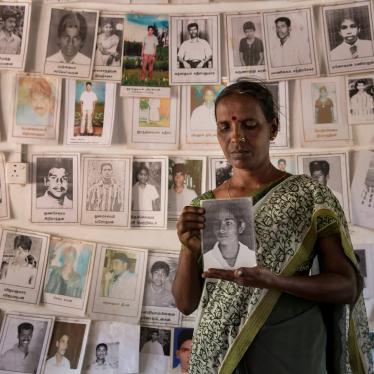Sri Lanka’s economy has contracted every year since 2019, but exports to the European Union have increased, providing vital income in desperate economic times. This has largely been due to the EU’s Generalised Scheme of Preferences Plus (GSP+), which grants Sri Lanka tariff-free access to the EU market so long as it complies with core human rights and labor rights treaties.
But, as the EU noted in a new report, the Sri Lankan government is falling well short of the mark.
The report identifies two bright spots for human rights in Sri Lanka: the “resilience” of civil society; and the 2022 Aragalaya (“struggle” in Sinhala) movement in which thousands protested for good governance “in the spirit of democracy and freedom of expression and assembly.”
Yet the report makes clear that civil society’s “resilience” is necessary in the face of government “harassment and intimidation.” Since President Ranil Wickremesinghe took office in July 2022, the government has adopted a “repressive response” to protests, arresting the movement’s leaders and employing “disproportionate use of force.”
This challenges the EU’s policy to assist Sri Lanka’s recovery from its economic, governance and human rights crises. As the report states, “The process of reform will be more sustainable and robust if Sri Lankan civil society is part of it and if the approach is truly inclusive.”
Notably, the government has yet to repeal the abusive Prevention of Terrorism Act – a key commitment to the EU – and even broke a moratorium on its use. As the International Monetary Fund noted in September, civil society’s “oversight and monitoring” of government actions is “restricted … by broad application of counter-terrorism rules.”
Instead, the government has proposed new counterterrorism legislation that does not meet rights standards, and an Online Safety Bill that the EU says “could lead to censorship.” Other rights concerns the EU highlighted include the “treatment of minorities … hate crimes … allegations of torture … decriminalising same sex relations … domestic violence and child abuse … [and] harassment and threats against human rights defenders, lawyers and journalists.”
These and other developments are incompatible with the GSP+ human rights requirements, and yet Sri Lanka’s government continues to benefit from the program. For conditionality to be credible, the GSP regulation needs to be reformed to require clear, public, and timebound benchmarks for compliance. This is what EU lawmakers should focus on: making GSP more effective in fostering human rights progress in beneficiary countries.








